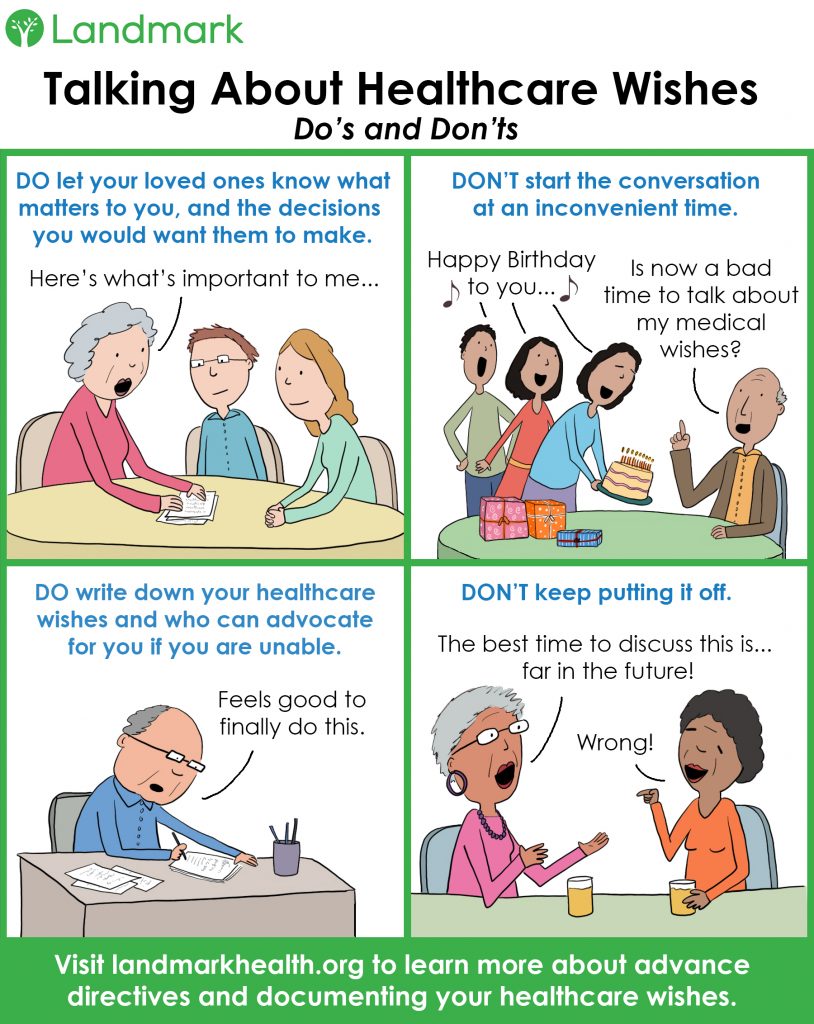
Blog post
Prioritizing Mental Health as a Universal Human Right
By: Neltada Charlemagne, DNP, APRN, PMHNP-BC, PHN, BHC
Advance care planning can take place at any time—it’s not just for those who are old or sick. You can prepare for these situations now, to be sure that your wishes will be followed no matter what.

Understanding Advance Care Planning
Are you putting off completing or updating your health care planning paperwork? Advance care planning can take place at any time—it’s not just for those who are old or sick. It is important to have quality conversations with your providers and family to advocate for yourself and your healthcare wishes.
Planning for your future can be important for you and your family. In an emergency or at the end of life, you may not be able to speak for yourself. You can prepare for these situations now, to be sure that your wishes will be followed no matter what. You will want to talk to your family and providers about what matters most to you, how you define quality of life, your hopes, goals and fears, and who can advocate for you if you are unable.
The documents that are used to record your wishes are important, but secondary to the conversations you have that allow you to express what is important to you. Sometimes it takes several conversations to decide and communicate what you want, and your decisions can change over time.
If you are a Landmark patient, your Landmark provider can help you decide what you’d like to communicate and answer any questions you may have.
Talking about Illness, Disability and Dying Can Be Difficult
Talking about and planning illness, disability and dying can be difficult. When talking to loved ones or your provider about this, acknowledge the difficulty of the conversation, and be willing to share private thoughts and vulnerabilities regarding treatment wishes. For example, you may want to discuss things like:
Advance Directives
Part of your advance care planning will be to complete your Advance Directives. Advanced Directives are legal documents that describe your wishes and goals if you can’t speak for yourself. Advanced Directives answer two basic questions:
1. Who should speak for me if I cannot speak for myself?
The person you select is sometimes referred to as your decision-maker or decisional surrogate. This person can be identified in a document such as Health-care Proxies, Health Care Representatives or Power of Attorney for Health Care.
2. What would I want them to say for me?
The documents that record your health care wishes are called living wills. Living wills can come in a variety of forms such as “Five Wishes” or similar.
Physician Order for Life-Sustaining Treatment (POLST)
For those living with a life-threatening illness, a Physician Order for Life-Sustaining Treatment, or POLSTis important. (Some states have variations on the name of the forms and language used in the form). If you or a loved one is in this situation, talk to your provider about completing a POLST and have it nearby where emergency medical responders could easily see it.
The POLST document allows emergency medical responders to follow your preferences for treatment. Without a POLST, responders will provide the most aggressive care, including cardiopulmonary resuscitation (CPR) and mechanical ventilation. A POLST allows you to choose what level of intervention you want, from full intensive care unit (ICU) treatment, to selected interventions, to comfort care. For example, some patients nearing the end of life feel staying comfortable at home is important, even if it means that they might die sooner.
Your POLST can be updated as often as you like. For example, you can review it for possible changes once a year or after any hospitalization or major illness.
Communicating Your Wishes Is Important
Communicating in advance with your loved ones and in writing is the safest way to ensure that your wishes are followed. The Advanced Care Planning process can make these situations easier by recording your wishes ahead of time and ensuring that whoever speaks for you knows what matters most to you.
Click here for more information.

By: Neltada Charlemagne, DNP, APRN, PMHNP-BC, PHN, BHC

Older adults can safeguard themselves from the physical, mental and emotional toll of unexpected medical costs.

Optum Care Network – Monarch has teamed up with Landmark to deliver in-home medical care to members with multiple chronic conditions.